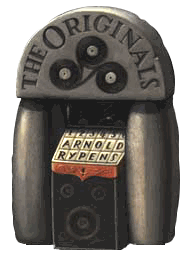BRABANÇONNE, LA
Created on 02/02/2002Latest update on 09/11/2023
Artist: Jenneval
Author: Jenneval/Frans Van Campenhout
Year: 1830
Lacking any reference to Belgian independence, just a plea to the Dutch king William to lend an ear to the problems down south (Dignes enfants de la Belgique). Those lyrics were outdated soon as the September resurgence broke out. A Nouvelle Brabançonne with music by Van Campenhout was published between October and December 1830. Part of the coda quotes from La Marseillaise: the French national anthem was a model for the Brabançonne (Ask Yves Leterme!). Originally Jenneval thought La Bruxelloise was a better title, but alas already in use. Jenneval is an alias for Hippolyte Louis Alexandre Dechet. Frans Van Campenhout was first a violIst, then a singer in the Monnaie. Part of the original lyrics are printed in Louis Peter Grijp's Muziekgeschiedenis der Nederlanden (Pelckmans) and can be heard on the cd-rom.
Covers:
- 1830:
Jean-François Lafeuillade [French tenor in the Brussels Theatre de la Monnaie on September 12th, the first day it re-opened since that same Lafeuillade sang the famous 'Amour sacré de la patrie'-part from La Muette de Portici, a performance triggering havoc on August 25th]
- 1831:
Frans Van Campenhout [in Brussels pub L'Aigle d'Or with new lyrics, inspired by the Dutch military actions that ultimately would take Jenneval's life three weeks later]
- 1831:
Jean-Baptiste Vautier [Frenchman, the 'Rouget de Lisle de septembre' as Aux manes de Jenneval, evoking the lyricist's heroic death]
- 1860:
Charles Rogier [the Belgian Home Secretary with again new lyrics, since the anti-Dutch feelings of the original were no longer relevant; still only in French; an official Dutch translation came one century after the initial events (1930s)]
- 1905:
Mr. Teirlinck [as Belgisch Vaderlandslied]
- 1908:
London Regimental Band [on Edison]
- 1910:
Louis Verstraeten [as Belgische Zang]
- 1914:
New York Military Band [also on Edison]
- 1917:
Alice Verlet [vocal version, French of course; again on Edison; on the B-side: La Marseillaise by Thomas Chalmers]
- 1919:
- 1972:
- 1977:
- 1984:
- 1985:
Ludo Coeck [bi-lingual single shortly before his death]
- 1992:
Waso [as Het Verdriet Van België]
When music publisher Jean-Joseph Jorez received Jenneval's poem, before Van Campenhout wrote music to it, he figured it could be sung to the melody of Les Lanciers Polonais, a song by Eugène de Pradel.


